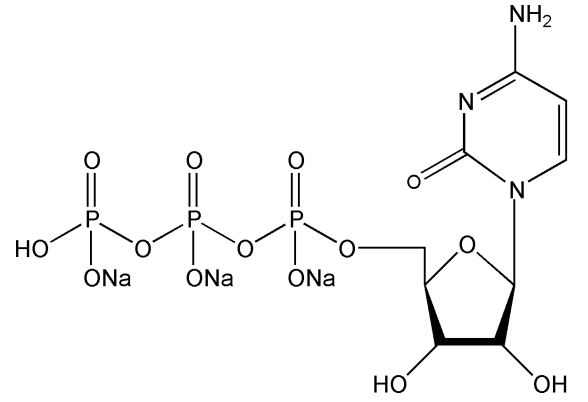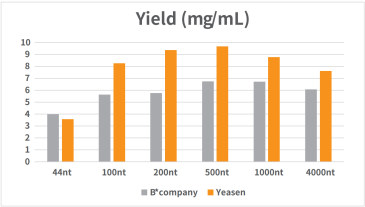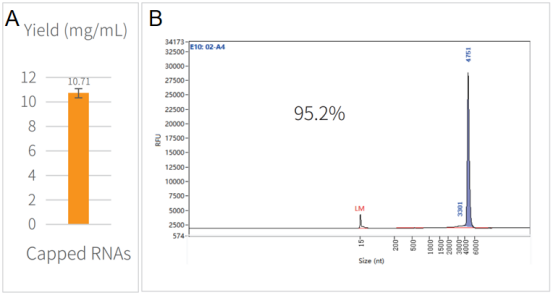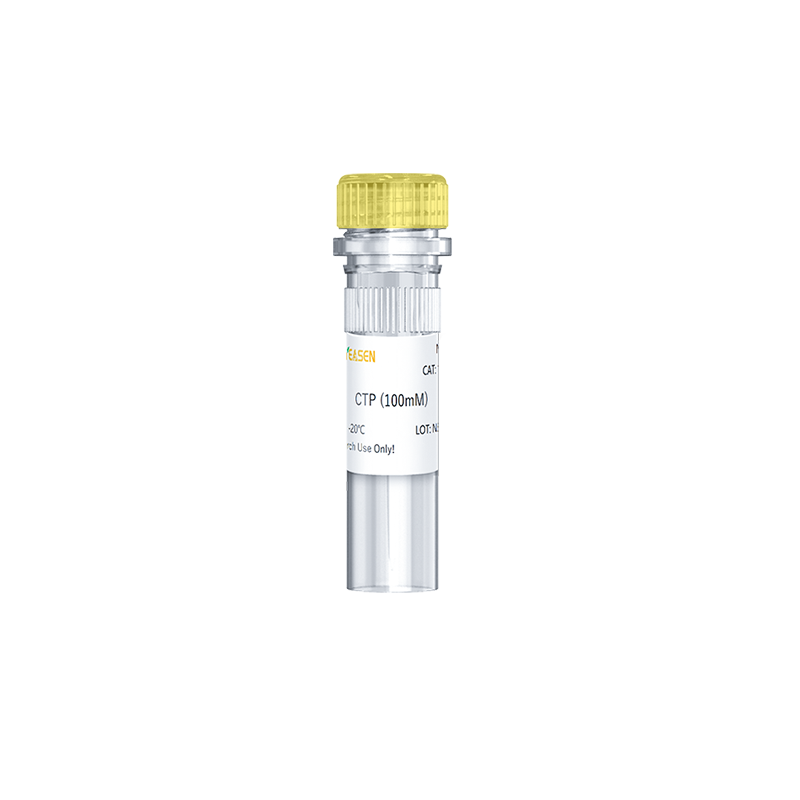Description
CTP, Cytidine-5'-triphosphate, can be used in a variety of molecular biology applications, such as in vitro transcription, RNA amplification, and the synthesis of choline and ethanolamine.
This product is a transparent colorless aqueous solution prepared from CTP trisodium salt, and free from DNase, RNase and phosphatase contamination.
This product is produced in accordance with GMP process requirements and provided in liquid form.
Feature
- Validated, product-specific process and analytical methods
- Product-specific stability
- Documentation follows applicable GMP guidelines
- AOF production process and raw materials (TSE & BSE)
- Nitrosamine statement
- Regulatory support documents available
- Large-scale production
- Nucleotide in the multiple salt form (Na+, Tris etc) always available to meet different downstream application needs
Application
- RNA synthesis and amplification
- Building block for in vitro transcription
Specification
| CAS No | 65-47-4 (free acid) |
| Formula | C9H13N3Na3O14P3 |
| Molecular Weight | 549.10 g/moL |
| Purity(HPLC) | ≥ 99% |
| Content | 100 mM ± 3 mM |
| Structure |  |
Component
| Components No. | Name | 10130ES03 | 10130ES10 | 10130ES60 |
| 10130 | CTP Solution GMP-grade (100 mM) | 1 mL | 10 mL | 100 mL |
Shipping and Storage
The product is shipped with dry ice and can be stored at -15℃ ~ -25℃ for two years.
Figures
- Standard RNA Synthesis

Figure 1. Standard RNA was synthesized in vitro using T7 RNA synthesis kit.
The reaction was incubated in PCR instrument at 37℃ for 2h, and then purified by magnetic beads (Cat#12602). The yield result was analyzed by NanoDrop spectrophotometer as shown in Figure 1.
- Capped RNA Synthesis

Figure 2. Synthesis of capped RNA in vitro.
The reaction was incubated in PCR instrument at 37℃ for 2h, and then purified by magnetic beads (Cat#12602). The yield result was assayed by NanoDrop spectrophotometer as shown in Figure 2A. The integrity result was analyzed by capillary electrophoresis as shown in Figure 2B.
Payment & Security
Your payment information is processed securely. We do not store credit card details nor have access to your credit card information.
Inquiry
You may also like
FAQ
The product is for research purposes only and is not intended for therapeutic or diagnostic use in humans or animals. Products and content are protected by patents, trademarks, and copyrights owned by Yeasen Biotechnology. Trademark symbols indicate the country of origin, not necessarily registration in all regions.
Certain applications may require additional third-party intellectual property rights.
Yeasen is dedicated to ethical science, believing our research should address critical questions while ensuring safety and ethical standards.

